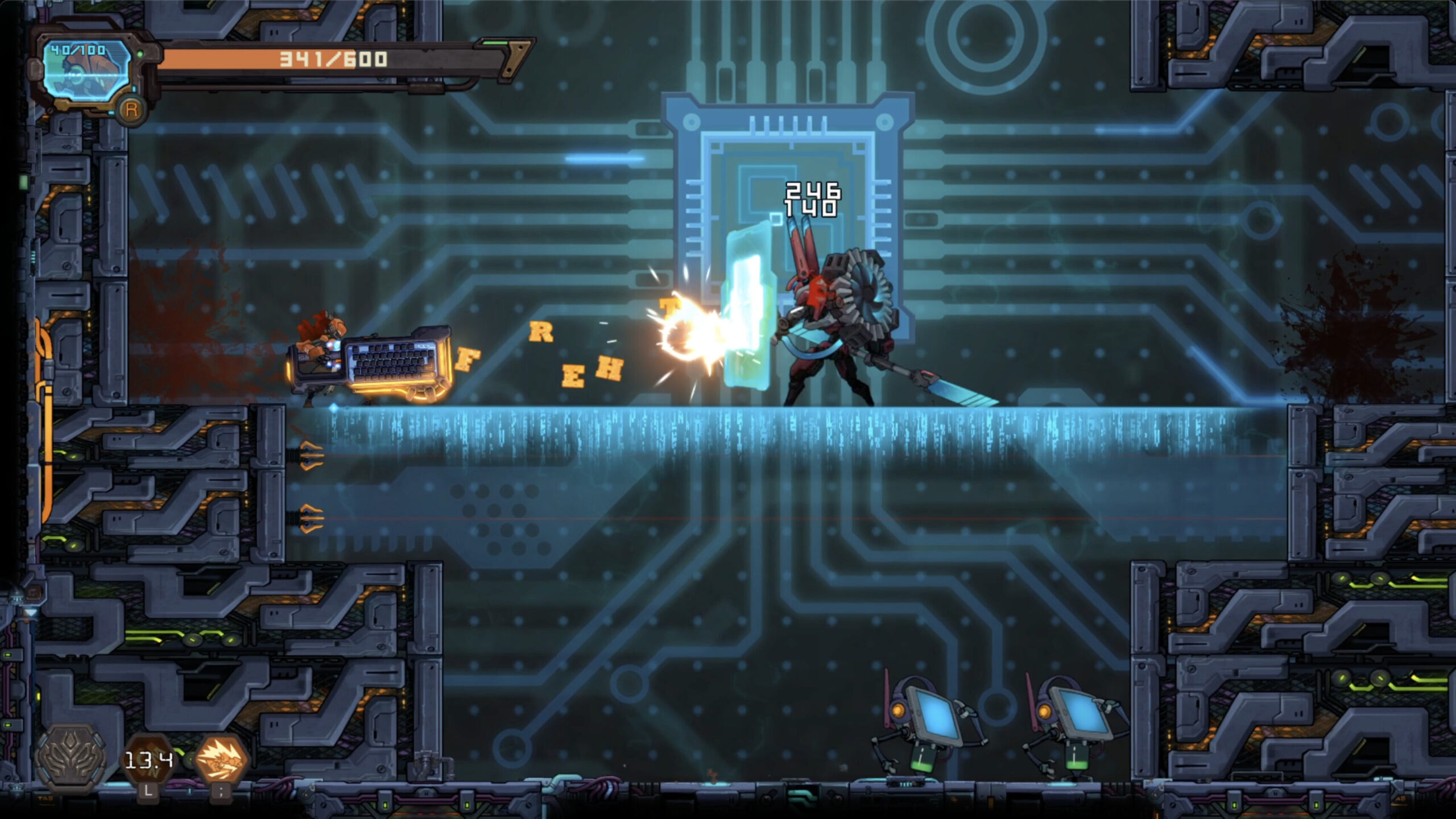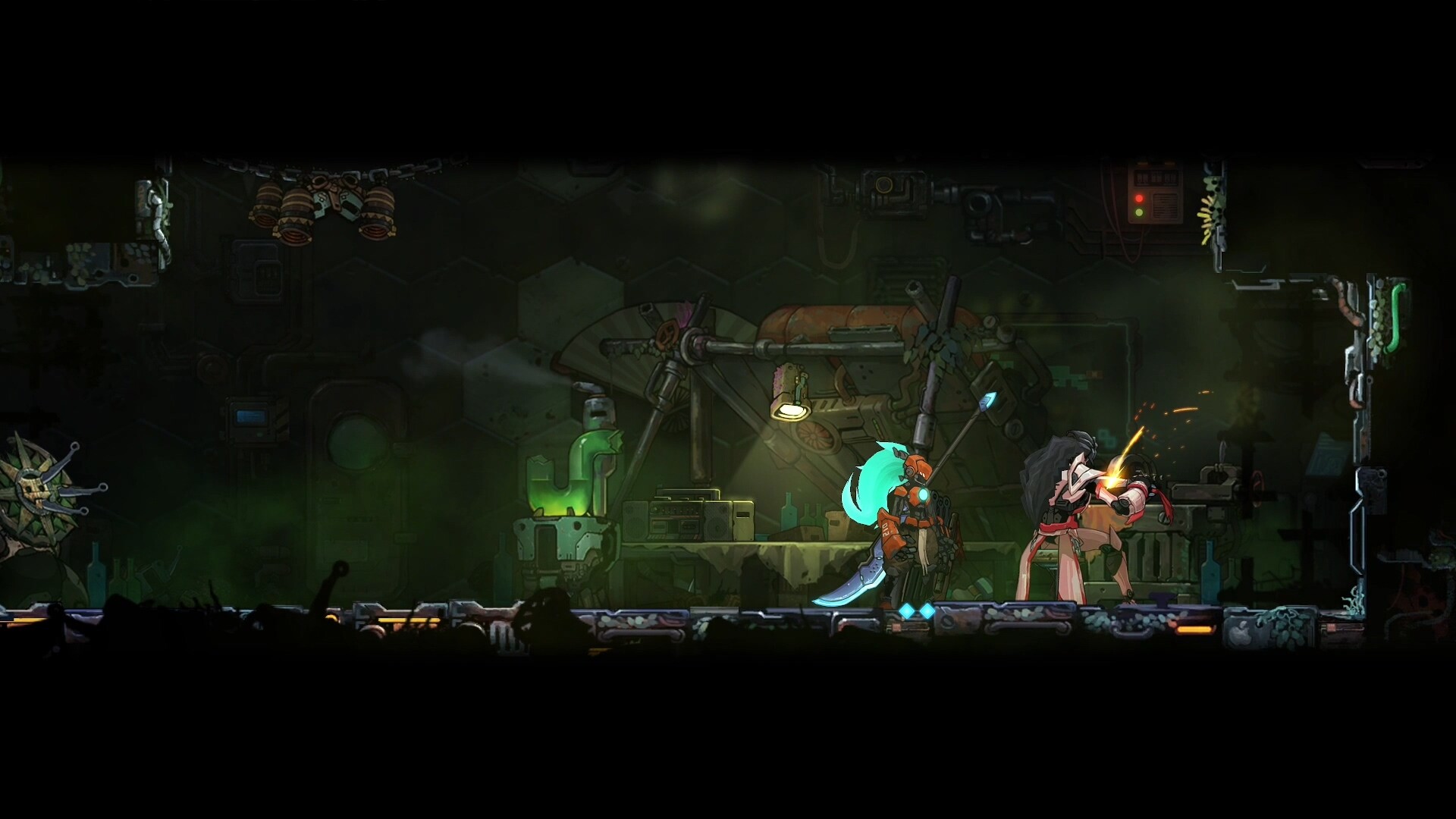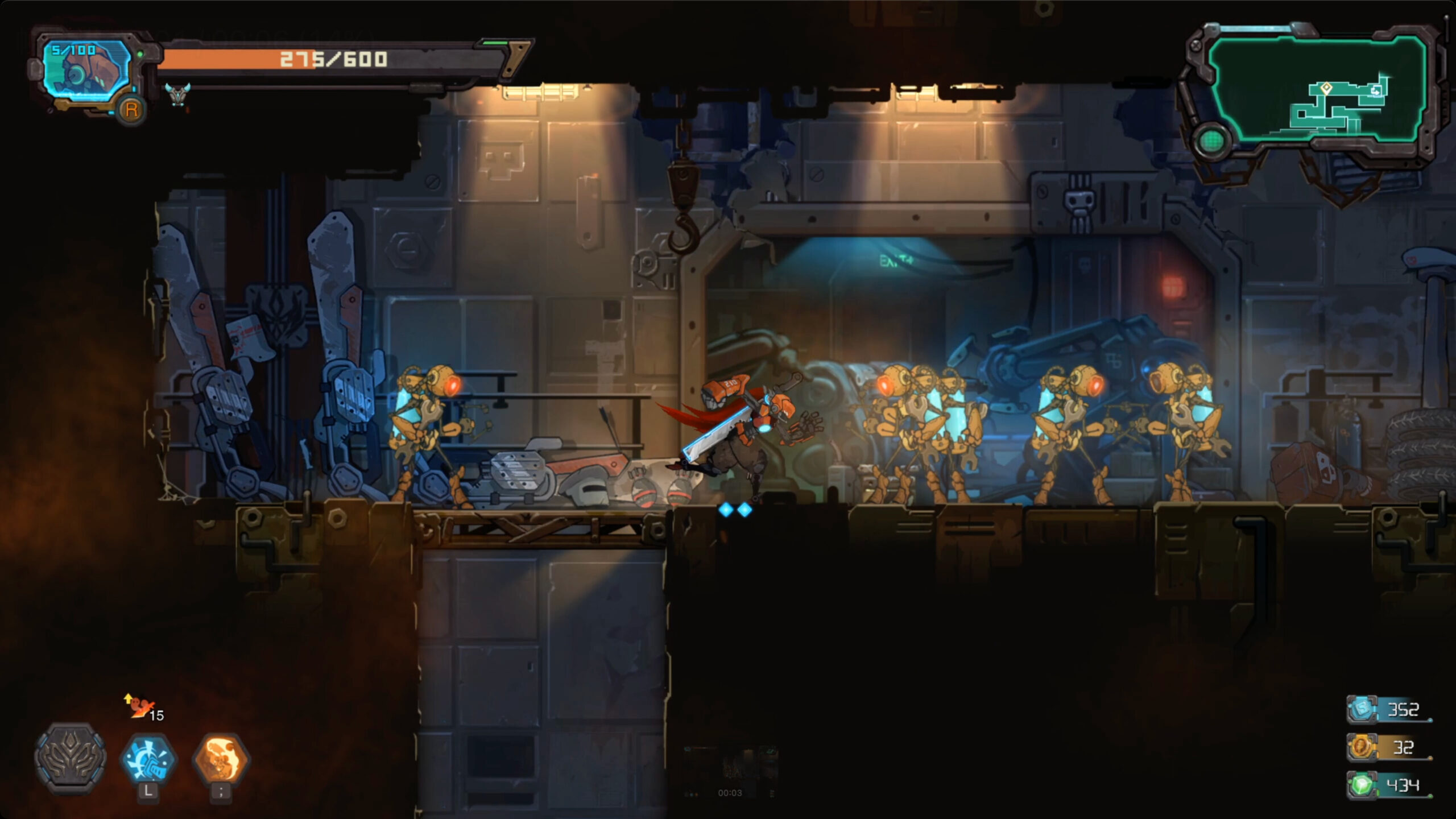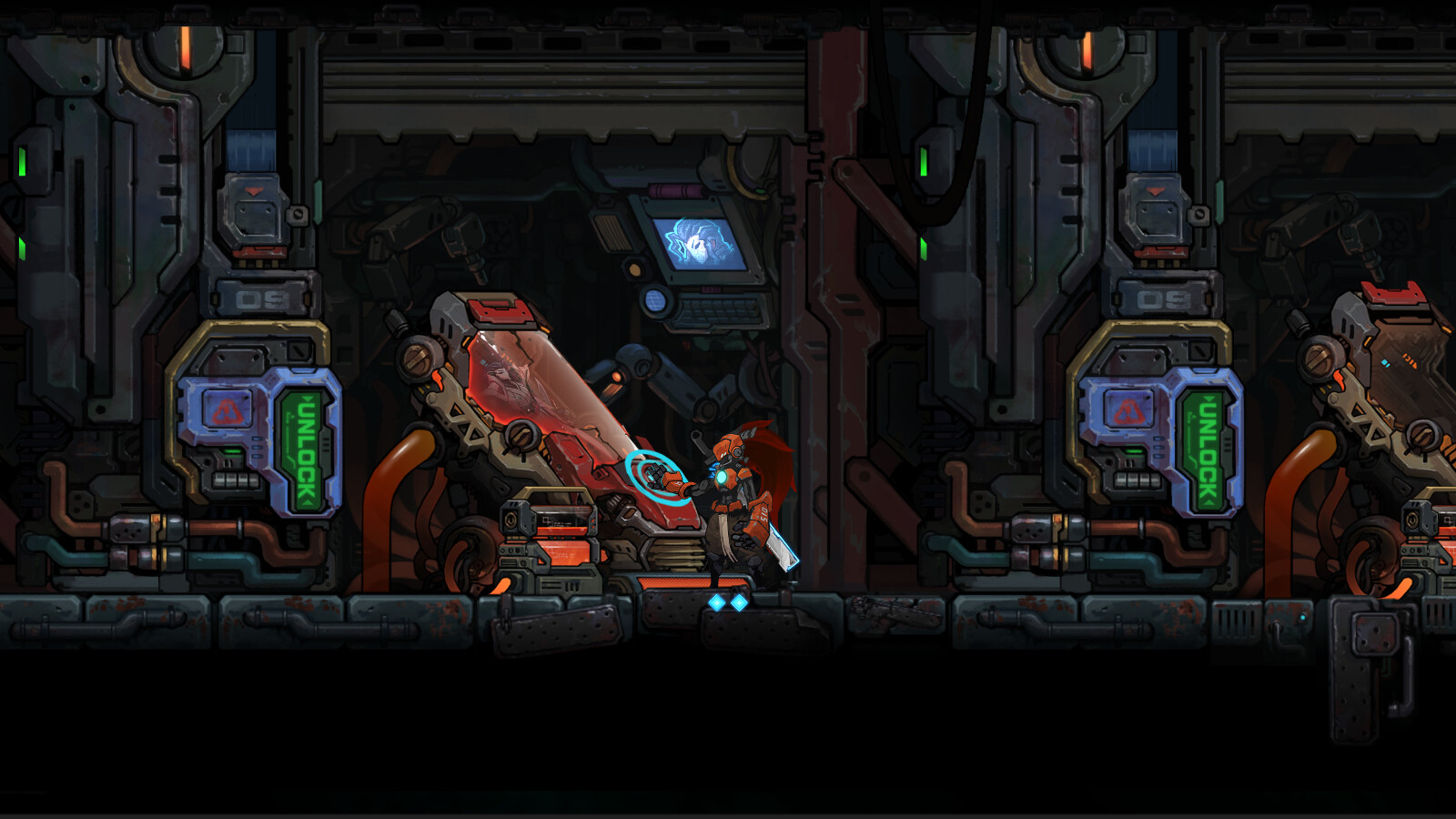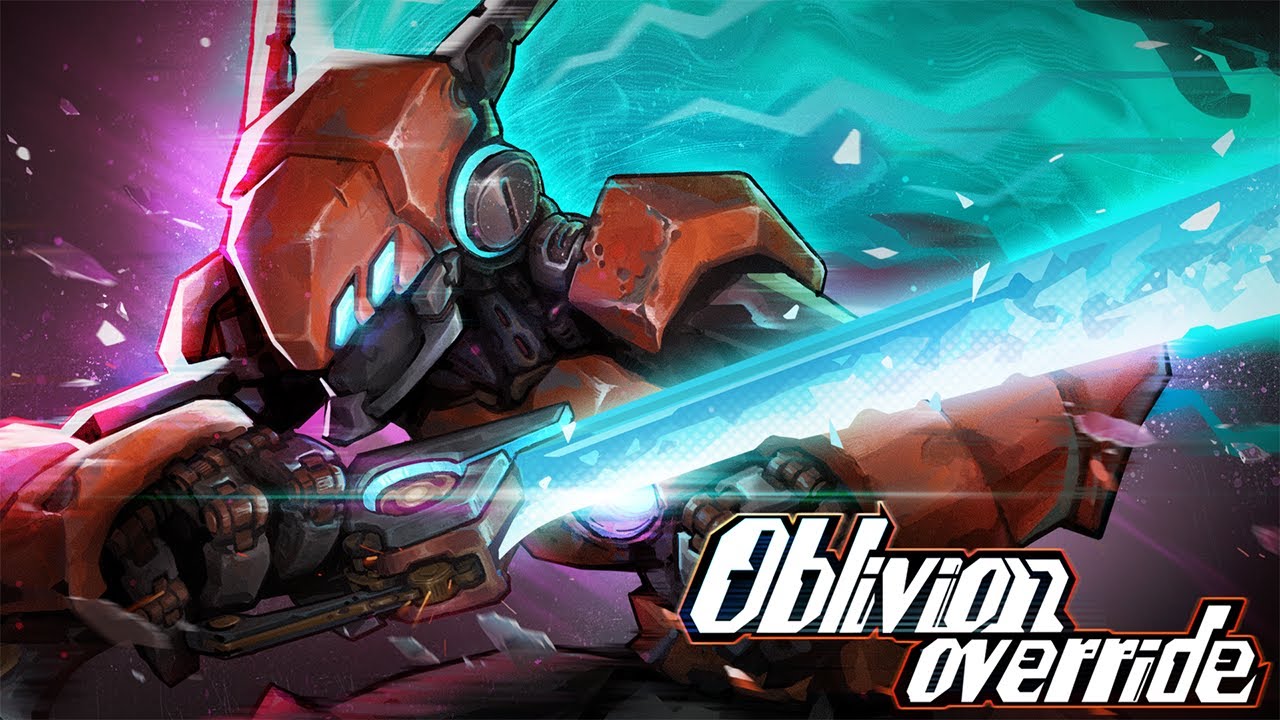
The words “roguelike” and “early access” wouldn’t inspire confidence a while ago, but while it still feels like a new roguelike comes out every week, the quality of Early Access titles has increased substantially on Steam, and we have many success stories, like Dead Cells and Risk of Rain 2.
In fact, we are reaching a time where Early Access games are feeling very complete, which is Oblivion Override‘s case. Featuring tight gameplay, a fantastic cyberpunk aesthetic, and crushingly difficult bosses, Oblivion Override is a game after my own heart.
The 2D hack and slash genre is definitely saturated; there’s no doubt about that, but being able to make 2D combat actually good is a challenge. Even games that I really enjoyed, like Blasphemous and Afterimage, end up feeling a bit stiff and unresponsive at times. Every once in a while, however, we get a title that simply does it right.
Oblivion Override has a lot of weight and flair to its combat, featuring crazy and unique weapons with flashy movesets and skills, alongside gorgeous environments and designs. It still has a little bit of growing to do, but I feel like a comparison to Dead Cells in terms of gameplay wouldn’t be out of place.
The game is still missing some meaningful upgrades to really win me over, as it’s a recent trend for roguelikes to play it really safe with their itemization, or upgrade nodes in Oblivion Override‘s case. They aren’t great, but at least they don’t feel generic since getting a set of the same upgrades gives the player some unique effects.
The player is limited on how many upgrade nodes they can get, and these range from making the player stronger as they lose health to giving them a chance to strike enemies with lightning with every attack.
There are also mech upgrades, which give the player unique skills based on the character they are playing. These also have their own upgrade path but don’t cost anything, so picking them up is always a good choice.
The upgrade system may be the game’s weakest point at the moment since the player is somewhat limited in the skills they get to choose from and it never feels like they amount to much. It’s disappointing to see such a competent game suffer from this problem.
That said, the upgrade system being a bit underwhelming isn’t a dealbreaker, as the game’s crushing difficulty would be affected if the player got too overpowered, so between removing the game’s impact and making the upgrades slightly boring, the developers chose right.
I’ve been really enjoying banging my head against the bosses until I can make it through. The possibility of choosing which boss fight you are going for after finishing an area is great since it lets the player focus on the fights they mastered for easier progress.
The player is rewarded with gold whenever they finish a boss fight, which they can spend on permanent upgrades that make the levels easier. These range from being able to reforge your weapons to recycling items you don’t want.
Oblivion Override definitely doesn’t feel like a roguelike you can clear without quite a bit of meta progression, as the bosses can be brutal walls that block the player from progressing until they have some better tools.
The bosses can also drop blueprints for new weapons, which incentivizes the player to clear all fights, as the weapons are one of Oblivion Override‘s biggest highlights.
Every weapon has its own moveset and skill, and a lot of them are highly impractical future weapons, like giant fists, a wok pot, or a computer keyboard. Making every weapon distinct is excessively important for a roguelike, as getting the same sword but in a different color with extra fire damage always feels disappointing.
Even though the 2D roguelike genre is currently going through a burnout, Oblivion Override manages to be a quality title worth keeping an eye on. Its fun gameplay loop and challenging bosses, along with a level of polish that’s unusual for an Early Access title make it worth your time, and I can’t wait to see how it develops into a full release. Here’s some of my gameplay:
Oblivion Override is available for Microsoft Windows (through Steam’s Early Access).
